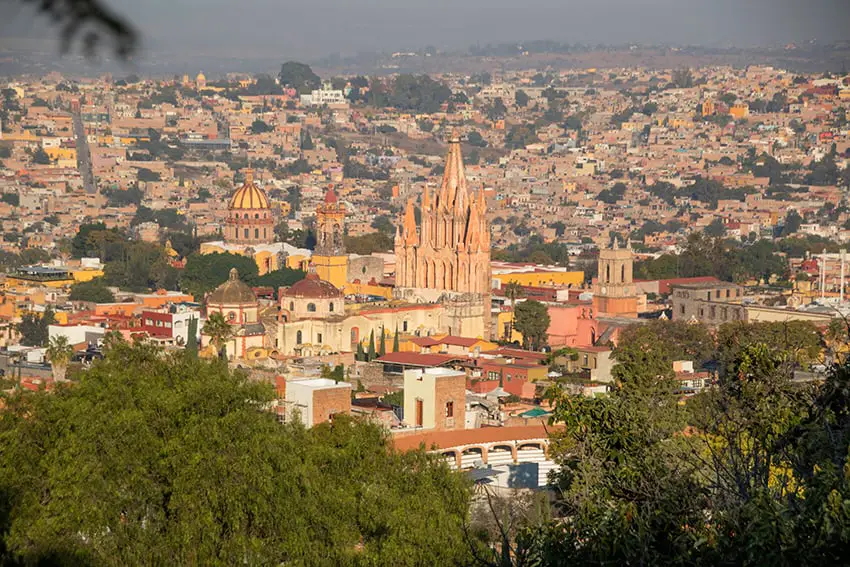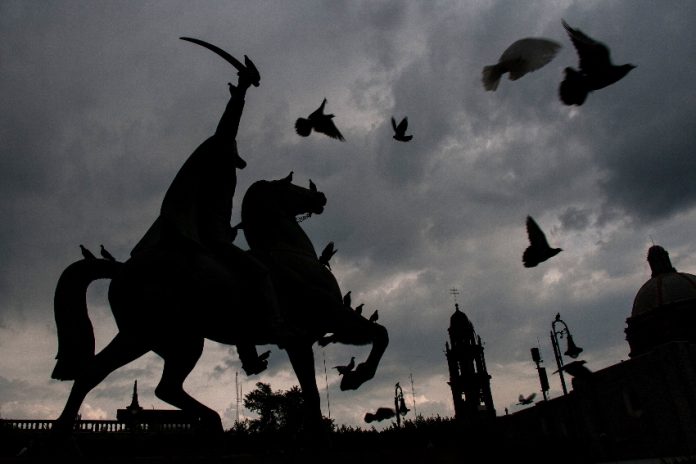An 11-year-old girl and her 16-year-old brother were murdered in San Miguel de Allende last Thursday, a crime that added to a week of what the mayor called “atypical” violence in the popular tourism destination.
The siblings were shot while cleaning up a property where they planned to open a barbershop and nail salon. The girl, identified only as Aidé Yareli, was to work as a manicurist at the business, while her brother, Aldo Isaac, was to work as a barber, according to the El Universal newspaper.
Witnesses told municipal police that a lone gunman entered the shop, shot the two children and fled. The crime occurred in the late afternoon in Ejido de Tirado, a neighborhood about four kilometers northwest of the historic center of San Miguel de Allende, a well-preserved colonial city in the state of Guanajuato. Media reports linked the homicides to a failure to comply with demands from extortioners.
In a video posted to social media on Friday, Mayor Mauricio Trejo Pureco denounced the murder of the siblings, declaring that violence against children “is not allowed.”
He then suggested that the double murder was related to drug use.
“… At the end of the day, if you are a young person or you are someone who uses drugs, I want to tell you there isn’t a happy ending. If you use drugs, you are not consuming a product, you are the product,” Trejo said.

In another video message on Saturday, the mayor said that the 16-year-old victim had been arrested three times, and that his prior criminal activity “of course, placed his safety at risk.”
“The investigations continue and we’re not going to criminalize anyone,” said Trejo, who pledged that authorities will hold those responsible for the murders to account.
Citing municipal authorities, the news website AM reported that the 16-year-old youth had previously been arrested for drug use. It also said that authorities had spoken with the victims’ parents, who said their son had received death threats.
The murder of the siblings triggered an outpouring of anger among residents of San Miguel de Allende, which is home to a sizable community of foreigners. A “peace protest” was scheduled to take place in the city on Monday evening.
In his message on Friday, Trejo said that last week was “an atypical week” given that there was a string of violent incidents in San Miguel del Allende, which has largely been spared the violence that has plagued other municipalities in Guanajuato, the Mexican state with the highest number of murders in recent years (Guanajuato is the country’s sixth-largest state by population).
“Never before during this administration have we had three criminal acts like we had this week,” said the mayor, who took office in 2021.
A week before the two minors were murdered, two men were killed in what was described as a “direct attack” as they drove through a San Miguel de Allende neighborhood, while the body of a man was found Jan. 19 near Presa Allende, a dam in the municipality.

The violence continued last Tuesday when a man was shot and killed in a neighborhood near the historic center. Earlier the same day, a bag filled with human remains was found in an eastern neighborhood of San Miguel de Allende.
All told, the municipality counted seven homicide victims in the space of eight days.
Trejo said Friday that “this violence that we’ve seen in some municipalities” of Guanajuato is related to the recent arrest of a high-ranking criminal leader. He was apparently referring to Luis Antonio Yépez Cervantes, a son of José Antonio “El Marro” Yépez Ortiz, the leader of the Guanajuato-based Santa Rosa de Lima Cartel until his arrest in 2020. Yépez Cervantes was arrested the first week of January.
The mayor said that authorities were committed to strengthening their security strategies “so that we can remain without fear in San Miguel de Allende and so that one atypical week doesn’t tarnish the quality of life we have in our great municipality, and especially so that one atypical week doesn’t tarnish the great achievements you and I have had in security, in reducing criminal acts.”
With reports from El Universal, Infobae, Latinus, Periódico Correo and El Debate
